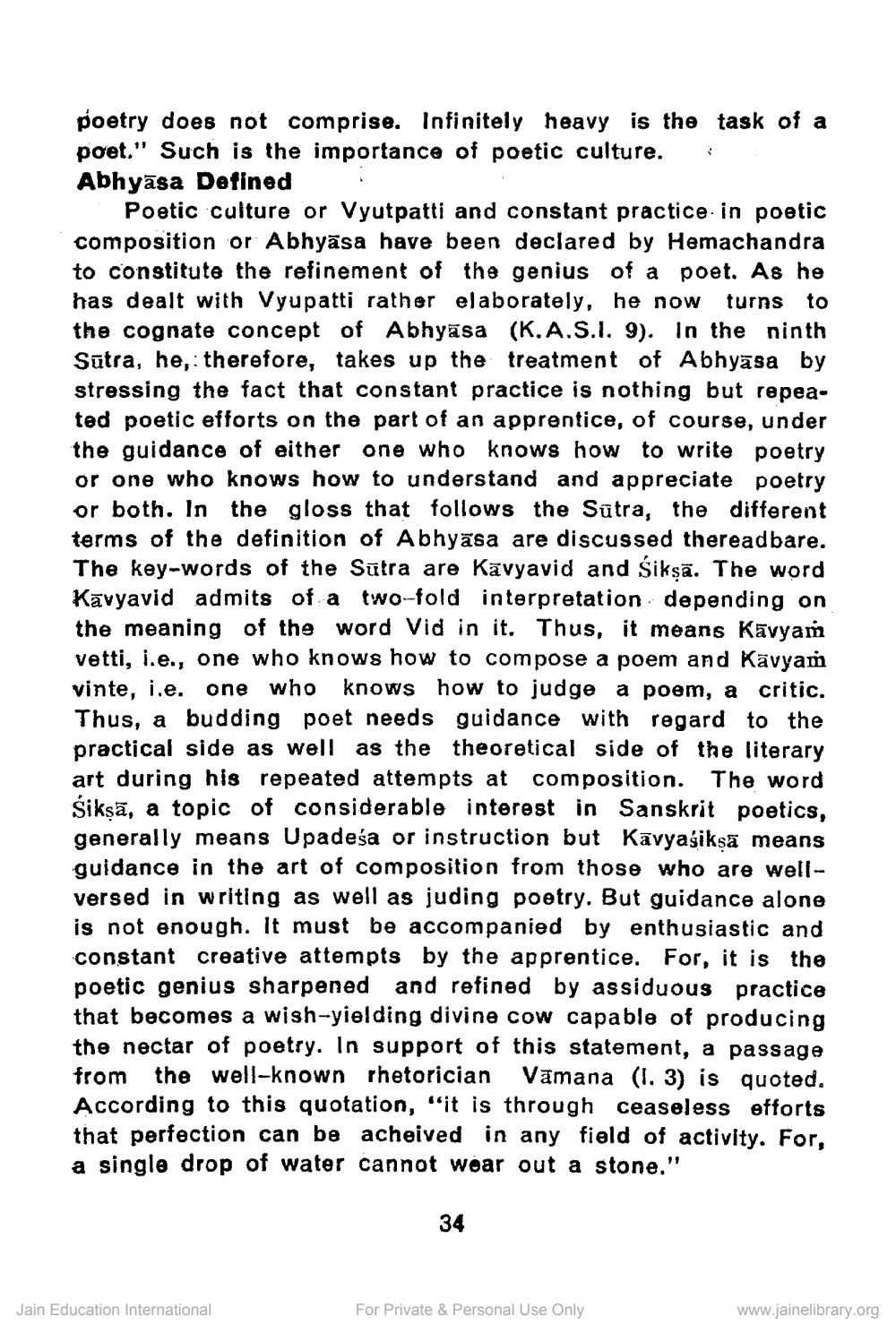________________
poetry does not comprise. Infinitely heavy is the task of a poet." Such is the importance of poetic culture. Abhyāsa Defined
Poetic culture or Vyutpatti and constant practice. in poetic composition or Abhyasa have been declared by Hemachandra to constitute the refinement of the genius of a poet. As he has dealt with Vyupatti rather elaborately, he now turns to the cognate concept of Abhyāsa (K.A.S.I. 9). In the ninth Sūtra, he, therefore, takes up the treatment of Abhyasa by stressing the fact that constant practice is nothing but repeated poetic efforts on the part of an apprentice, of course, under the guidance of either one who knows how to write poetry or one who knows how to understand and appreciate poetry or both. In the gloss that follows the Sūtra, the different terms of the definition of Abhyasa are discussed thereadbare. The key-words of the Sūtra are Kavyavid and Śikṣã. The word Kāvyavid admits of a two-fold interpretation depending on the meaning of the word vid in it. Thus, it means Kavyam vetti, i.e., one who knows how to compose a poem and Kävyam vinte, i.e. one who knows how to judge a poem, a critic. Thus, a budding poet needs guidance with regard to the practical side as well as the theoretical side of the literary art during his repeated attempts at composition. The word Siksā, a topic of considerable interest in Sanskrit poetics, generally means Upadeśa or instruction but Kavyasikşā means guidance in the art of composition from those who are wellversed in writing as well as juding poetry. But guidance alone is not enough. It must be accompanied by enthusiastic and constant creative attempts by the apprentice. For, it is the poetic genius sharpened and refined by assiduous practice that becomes a wish-yielding divine cow capable of producing the nectar of poetry. In support of this statement, a passage from the well-known rhetorician Vamana (1. 3) is quoted. According to this quotation, “it is through ceaseless efforts that perfection can be acheived in any field of activity. For, a single drop of water cannot wear out a stone."
34
Jain Education International
For Private & Personal Use Only
www.jainelibrary.org




